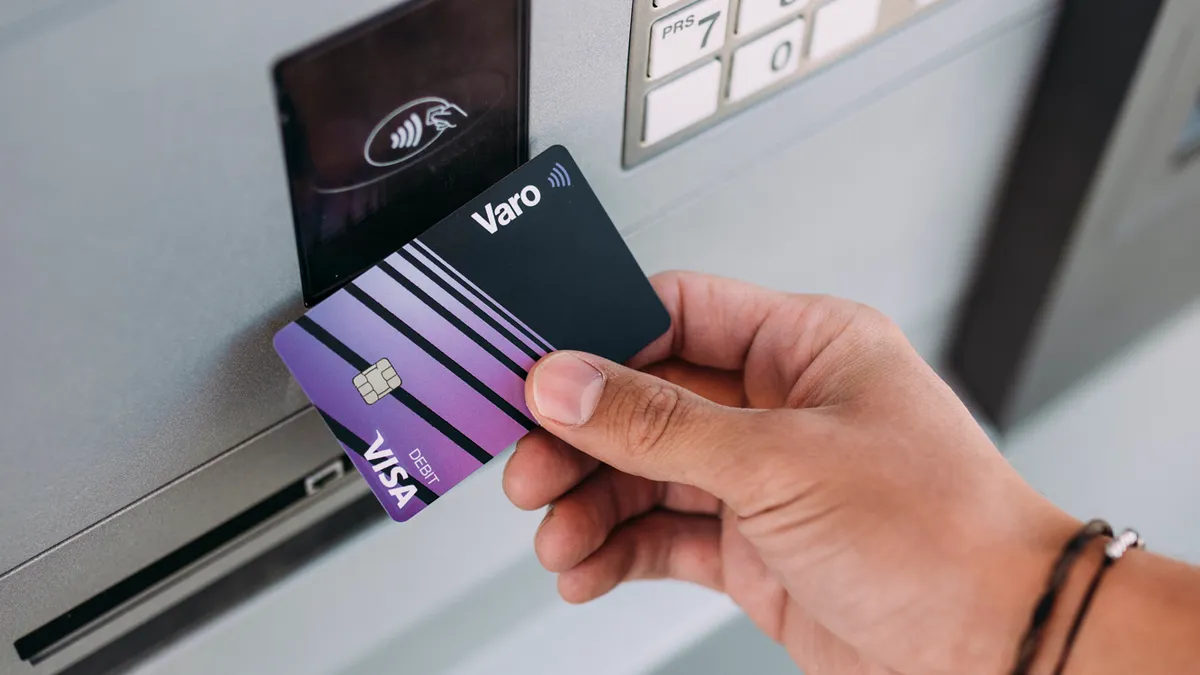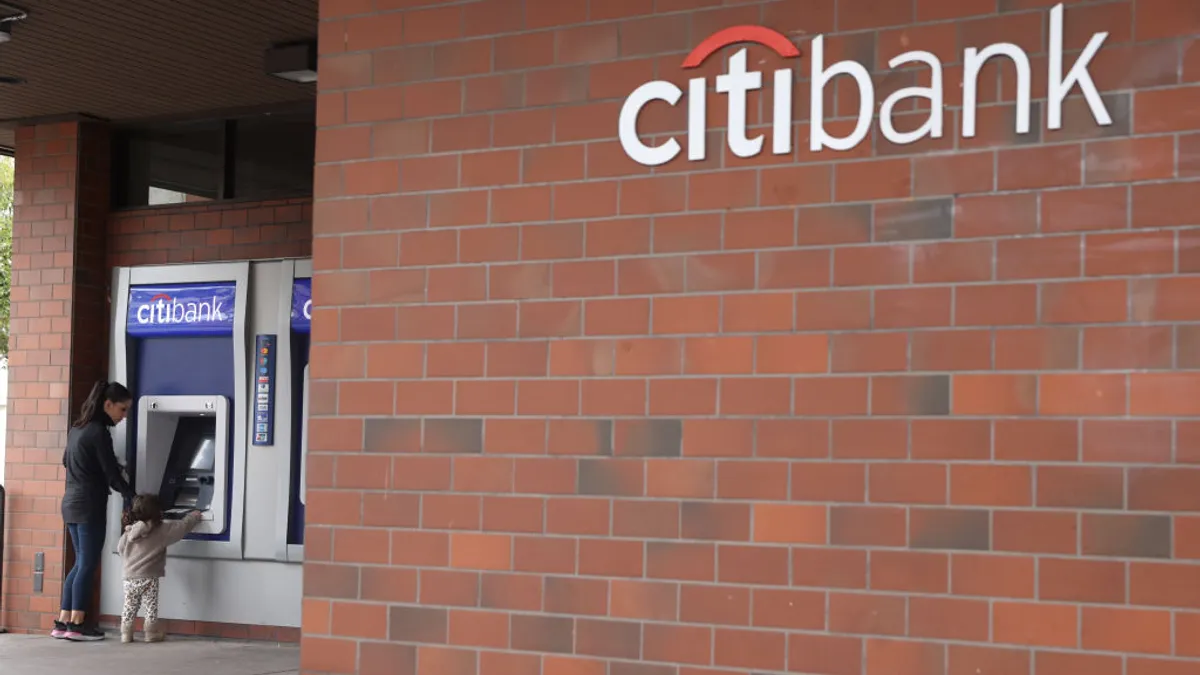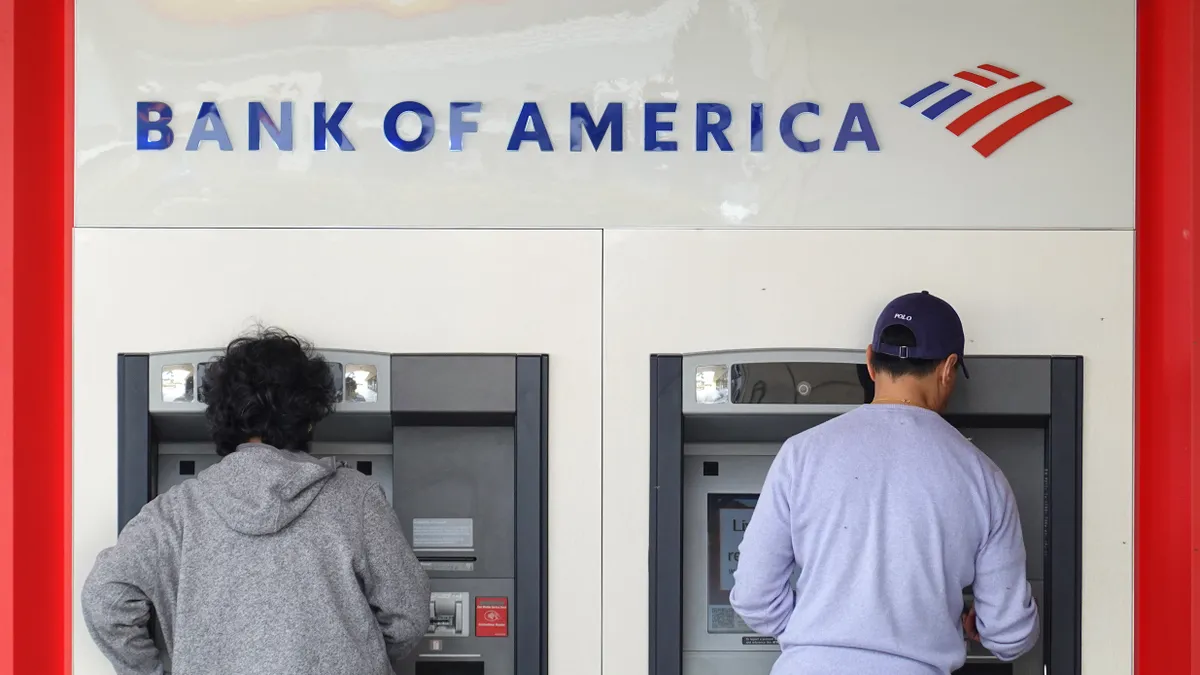Varo Bank’s latest $510 million funding round is a testament to the digital bank’s decision to pursue and successfully obtain its own bank charter last year, said Wesley Wright, the company's chief commercial and product officer.
"It’s a key moment in our journey, fulfilling our mission, and an external validation of our decision to seek a bank charter and become a bank that combines a regulated stable banking institution with cutting edge technology, and data and design capabilities of a Silicon Valley company," Wright said of the Series E funding round, which the bank closed last week.
The round, which tripled — to $2.5 billion — the San Francisco-based startup’s valuation from its previous round, according to CNBC, was led by new investor Lone Pine Capital, and involved new investors Declaration Partners, Eldridge, Marshall Wace, Berkshire Partners/Stockbridge and funds and accounts managed by BlackRock. Returning investors included Warburg Pincus, The Rise Fund, Gallatin Point Capital and HarbourVest Partners.
"It shows that investors really see the value of what we're doing and are willing to support it," Wright said.
Varo, which was founded by CEO Colin Walsh in 2016, became the first neobank to gain a national bank charter in July 2020, a three-year process that cost the startup $100 million. To date, the company has raised close to $1 billion, Wright said.
Varo plans to use the new funding for four main areas: account growth, brand building, its product roadmap and operational and risk management infrastructure, Wright said.
"We've doubled our customer base to 4 million in the past year, and we're really looking to continue to drive that growth. One way that we're going to be doing that will be to invest in our brand, and to build that into a beloved brand recognized for its mission and focus on social impact," he said.
Benefits of charter
Securing a charter has allowed Varo to offer its own lending products, and has been a key step in helping the company move toward a long-term sustainable model, Wright said.
In slightly more than a year since gaining its charter, the company added Varo Advance — a short-term line of credit — and Varo Perks cash-back rewards. The company also plans to roll out a credit-building credit card called Varo Believe. The product is in beta.
"[The charter] has definitely paid off in terms of the path we see ourselves on," Wright said. "When we lend, we can do that off of our own balance sheet. We don't have to raise money from outside investors."
Varo will continue to focus on differentiated savings rates, Wright said. The company offers a 3% savings rate to active customers, a feature that was an expense under its old sponsor bank model, Wright said.
"Now that we’re a bank, that money comes into our balance sheet and we can invest it and put it to work either in our own lending businesses, or in other types of appropriate investments for the bank," he said.
Varo is also looking into ways it can leverage customer data to provide insights and suggestions aimed at helping users achieve their financial goals, Wright said.
Varo’s ability to operate as a bank and no longer rely on a sponsor institution to provide financial services gives the firm a level of credibility in the marketplace, Wright said.
"There are a range of questions that are being raised by politicians and regulators about nonbank players in financial services," he said. "Some other folks have had some stumbles. There have been issues that regulators have had concerns with, in terms of how they treated customers. … The banking industry has had its own ups and downs over the years, as well. But now we’re a regulated institution and we're working very closely with our regulators. It's a very different position to be in."
Competition welcome
Varo’s latest round comes as some traditional institutions have launched services that mirror the digital bank’s flagship products, such as early access to direct deposit and no overdraft fees.
But Wright said the digital bank welcomes the trend, and is happy to see incumbents begin to offer products Varo customers have grown accustomed to.
"It's great to see innovation coming from traditional players. It's great to see them waking up and saying, ‘Gosh, we shouldn't be charging overdraft fees anymore.’ We welcome that," he said. "But compared to those sorts of players, we really bring our digital DNA. We don't have legacy infrastructure. We have a very modern technical stack that positions us as well to compete. We feel like we're uniquely positioned to be differentiated in the marketplace and this round of fundraising puts us in a position to really continue to invest in our products, in our value proposition and in our customer experience."
New hub
Varo last week unveiled Charlotte, North Carolina, as its third hub to complement locations in San Francisco and Salt Lake City.
The company has 120 employees operating out of Charlotte, a city known as a headquarters for large banks such as Bank of America and Truist.
"We always knew that for our next location we wanted to have it on the East Coast because we want to cover the whole country from a time-zone perspective," Wright said. "We thought about Charlotte as a place that has a lot of great financial services talent and a great place to build a hub."























